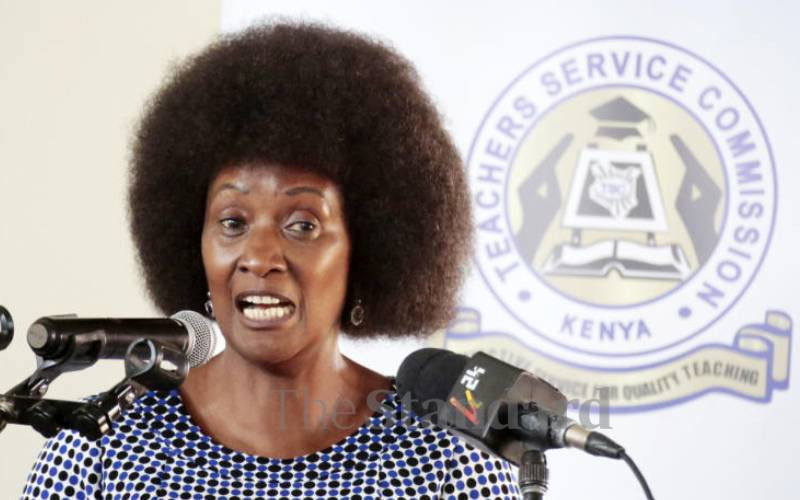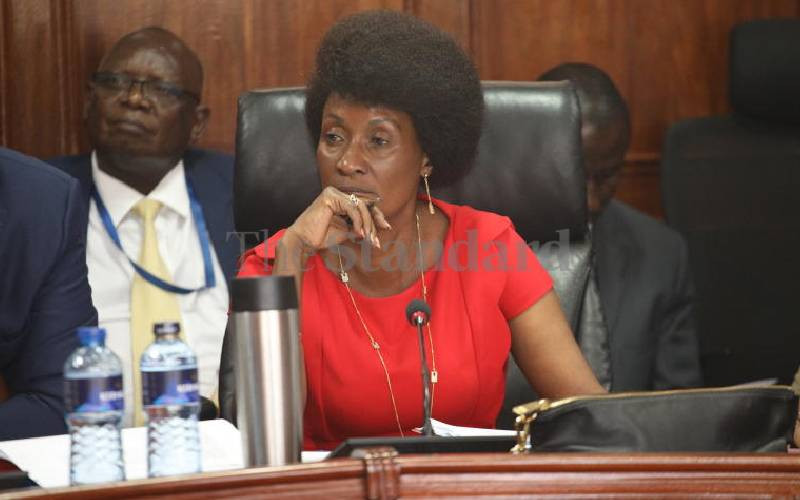By Juma Kwayera
NAIROBI, KENYA: Teachers unions say the World Bank and major technology firms are pushing the Government to implement education projects Kenya is not ready for.
This is one of their reasons for opposing the budget item that proposes Sh53 billion to provide laptops in primary schools. Their main reason is that part of the money can be used to pay them higher allowances.
Kenya National Union of Teachers (Knut) Chairman Wilson Sossion says the World Bank is against Knut proposals to hire more teachers and increase their pay.
Instead, it vouches for e-education initiatives that require less manpower and a public wage bill tailored to Government revenue. Sossion, however, says this position is intended to favour business interests in the developed world keen to see developing countries world consume more technology products.
“Instead of employing sufficient number of teachers, they are investing in technology to replace the physical teacher,” Sossion says.The Knut official says Kenya’s “teacher shortfall” — often quoted at between 40,000 and 60,000 — has its roots in the Structural Adjustment Programmes forced on the country two decades ago by the World Bank and its lending arm, the International Monetary Fund.
The Government plans to hire just 10,000 yearly and spends money on other programmes like the laptop project. Kenya Secondary Schools Heads Association Chairman, John Awiti, questions the level of foreign interest in solving local education problems.
“We have seen educational projects conceived hurriedly and implemented haphazardly,” says Mr Awiti.
E-learning in schools
“Solutions to our education (challenges) must be homegrown. E-learning and e-teaching must take place in an environment where everybody has the capacity and access to the technology. As it is right now, this is a political programme.”
Mr Akello Misori, the Secretary-General of Kenya Union of Post-Primary Union of Teachers (Kuppet), says he has doubts about the laptop project.
He has no objections, however, if the Government can implement it alongside other programmes agreed with teachers. Sossion says the Government should interrogate the World Bank’s e-learning and e-teaching prescription.
The Bank is funding a project under which the Kenya Institute of Education is digitising education materials.
He warns the project, now at an advanced stage, will reduce classroom contact. Uwezo, a research firm that focuses on education in East Africa, says the education system is failing many students and warns this could get worse with the introduction of digital learning. “Less than 30 per cent of students are learning at their grade level,” says Uwezo director, Dr John Mugo.
“More regrettably, more than five per cent of children completing primary school cycle are leaving without having acquired the basic literacy and numeracy skills of Standard Two level.”
Stay informed. Subscribe to our newsletter
To supporters of e-learning, however, the poor skills among students graduating from primary school is proof a new approach is needed. They also point out digital learning will enable fewer teachers to do more.
 The Standard Group Plc is a
multi-media organization with investments in media platforms spanning newspaper
print operations, television, radio broadcasting, digital and online services. The
Standard Group is recognized as a leading multi-media house in Kenya with a key
influence in matters of national and international interest.
The Standard Group Plc is a
multi-media organization with investments in media platforms spanning newspaper
print operations, television, radio broadcasting, digital and online services. The
Standard Group is recognized as a leading multi-media house in Kenya with a key
influence in matters of national and international interest.
 The Standard Group Plc is a
multi-media organization with investments in media platforms spanning newspaper
print operations, television, radio broadcasting, digital and online services. The
Standard Group is recognized as a leading multi-media house in Kenya with a key
influence in matters of national and international interest.
The Standard Group Plc is a
multi-media organization with investments in media platforms spanning newspaper
print operations, television, radio broadcasting, digital and online services. The
Standard Group is recognized as a leading multi-media house in Kenya with a key
influence in matters of national and international interest.









